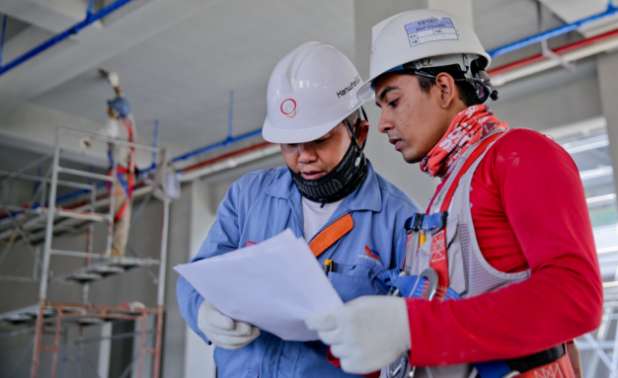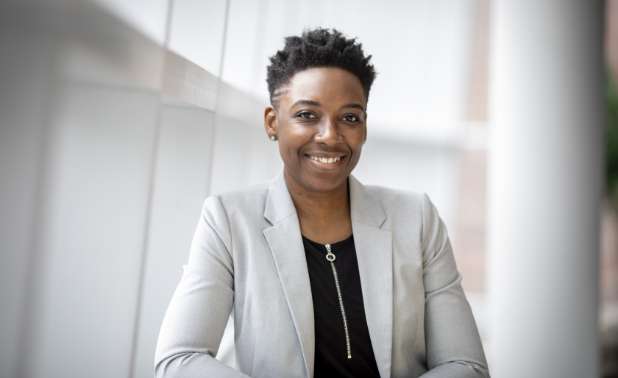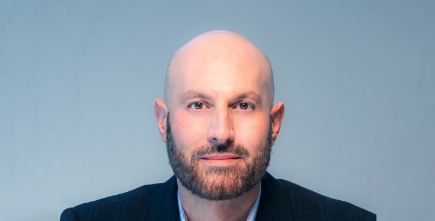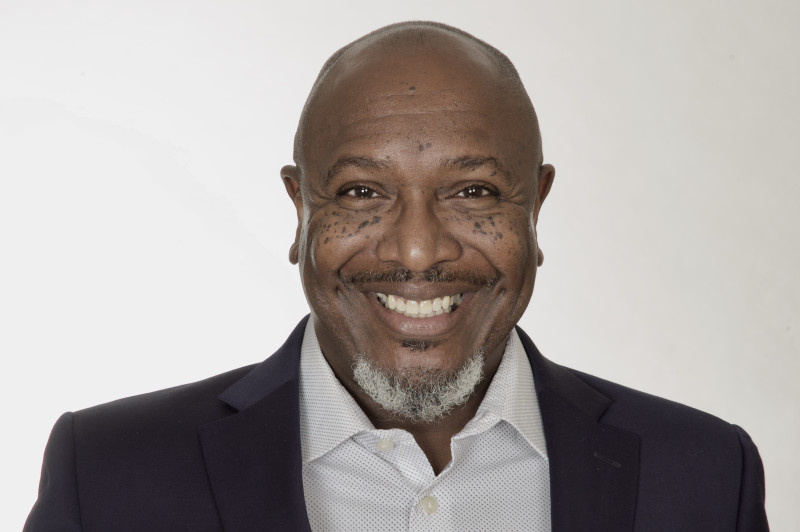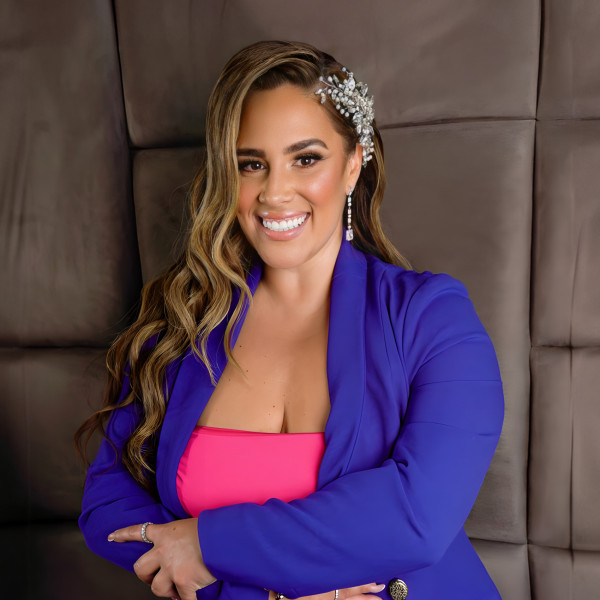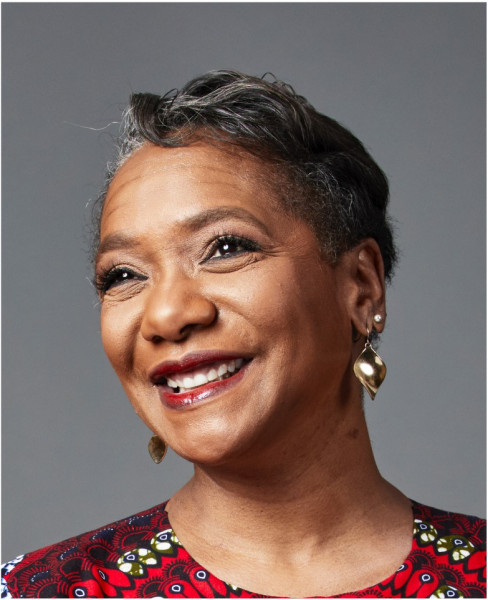Kamela Forbes:
Welcome to But First, People, a podcast by Pride Global that dives into the remarkable diversity of the
world of work. I’m your host, Kamela Forbes, and as we celebrate Pride Month, I have the honor of speaking
with Steven Garibell, Vice-President at TD Bank. At TD Bank, Steven spearheads the community and LGBTQ+
business development efforts, playing a pivotal role in increasing the hiring of LGBTQ+ professionals and
providing essential banking services to their community.
In addition to his contributions at TD Bank, he extends his dedication to advancing LGBTQ markets through
his involvement with the National LGBT Chamber of Commerce. Within NGLCC, Steven serves on the certification
committee, ensuring that participating enterprises are LGBTQ+ owned and that those businesses are gaining
access to proper supplier diversity initiatives and resources.
Furthermore, he serves as the Chair of the TGX Mentorship Committee, acts as the Board President of the New
Jersey Pride Chamber of Commerce, and is a part of the Stonewall Community Development Corporation and CUNY
LGBTQ+ Advisory Council. He’s widely recognized for being a bridge-builder and for driving positive change
through his collaborative efforts to empower and uplift the LGBTQ+ community.
In today’s episode, we dive into the power of being an ally and how we can create inclusive cultures and
initiatives that promote hiring and support of LGBTQ+ individuals. So without further ado, welcome to the
show, Steven.
Kamela Forbes:
So Steve, one of the signature themes of But First, People Podcast is that we have our guests sing a song
for us. Now I am karaoke queen, love a song, but it really coincides nicely with Pride Global, because here
we have our employees, whenever they start, they get to sing 15 to 30 seconds of a song and it’s just a nice
way to warm up, get introduced to your audience and just feel at home, but it’s about getting real and
relaxed. So, in that vein, what song would you like to sing for us today?
Steven Garibell:
I think one of my go-to albums right now is Trustfall, so Pink’s new album. I’m not the best singer, but
I’ll give you my version of a verse. So picture a place where it all doesn’t hurt, where everything’s safe
and it doesn’t get worse. Oh my, we see through bloodshot eyes. That’s my favorite one right now.
Kamela Forbes:
All right. Well, there we go. To the point. But it’s all about the words of that that really resonate and
stay close to home. Now, I know a little something about you: that you’re a passionate champion of DE&I and
of supporting diverse-owned businesses, and you’re also notorious with supporting and creating opportunities
to advance the LGBTQ+ professionals and business owners. So tell me, what is your why? What inspires you to
do what you do?
Steven Garibell:
I think seeing people be successful, no matter what challenge they have had put in front of them, is just
something that makes me happy. And there’s so many resources out there and there’s so many opportunities,
but we’re all bad at marketing them, so no one really knows where they are. So with diverse-owned
businesses, really helping them connect the dots. An entrepreneur that has a dream, if I could be a part of
helping them get there... I’ve had great mentors in my career that have helped me along the way, so when I’m
working with colleagues, and if there’s a way that I could help them maybe find a better step to get to the
next level or the next spot in their career, it really makes me feel good in the end to help people
succeed.
Kamela Forbes:
Yeah, and when you hear their stories... I mean, they’ve done the work, they’ve put in that time and the
effort and the energy, and they have a product or service that’s amazing, and all they need is one little
piece of the puzzle. And if you could provide that, why wouldn’t you?
Steven Garibell:
It’s the connector piece sometimes that we miss on, and it’s okay. Especially as an entrepreneur, sometimes
we don’t want to ask for help or think we have to have all the answers, and we will never have all the
answers. I struggled earlier in my career being like, "Hey, help me," raising my hand and saying, "Let me
take that help," or getting the introduction that would have helped. And I learned that those are the things
that really can help you excel. You can help all the skills out there, but if you don’t know how to connect
them with the right people or opportunities or organizations, they’re all going to go to waste.
Kamela Forbes:
Well, that’s a great piece about just being that missing piece of the puzzle. So Steve, this month, as we
know, is Pride Month. month of June, we celebrate. I would love for you to tell us how your experience of
being a member of the LGBTQ+ community has influenced your personal and your professional life.
Steven Garibell:
From being part of the LGBTQ+ community, I’ve seen...an older generation one too, so I’ve seen things a
little differently. When I was younger, there weren’t kids out in high school. It was something that people
came out later in life, where they hid it and it helped them not live to their full potential. Earlier on in
my career, when you’re hiding something, you can’t live to your full potential. So once you unlock that
piece of saying, "Hey, I feel comfortable being my authentic self," it really helps you connect better and
live your career potential and your personal potential. You’re never going to be fully happy if you can’t
show everyone who you really are.
Kamela Forbes:
Yeah, about bringing your true self to work and bringing your whole self.
Steven Garibell:
It is, and it’s hard. It takes time, and everyone has a different journey with it, and that’s the biggest
piece of why I like to be out and helping people.
Kamela Forbes:
Yeah. And I think that’s really the key that you talk about the generational difference of how it was back
then and the way the future is looking for us and for people in the community, that they’re able to show up
as themselves and bring everything to that table. In your current role, you lead your company’s efforts to
increase the hiring of LGBTQ+ professionals. Can you share some of the initiatives you have in place to
accomplish this?
Steven Garibell:
I think when we look to bring on new employees, there’s so many different areas that we can go. One of the
things that we’ve had some great success with is working with some of our community partners and nonprofit
organizations that have clients that need jobs, and really helping them learn about what careers in banking
is and finance, because it’s not what everyone thinks.
Old-school banking isn’t the same. There’s not just a teller position. There’s not just retail-store
position. There’s other opportunities too. But the retail store is such a great place to get in. I started
my career through retail apparel and retail banking, and it’s a great way, especially for members of our
community, to find an organization that supports their community, has benefits that support them.
And it’s not just about going out to our community partners to tell them about careers. It’s about helping
them scale them and get them there, whether it’s working with building a LinkedIn profile... We all know
that everyone finds their jobs on LinkedIn now. Helping to learn how to tweak their resume or talk about
maybe some gaps in their employment that they’ve had that were for reasons that are more LGBTQ-related, and
how to explain that in an interview. And going through helping them get more comfortable with interviews and
interviewing tips, really working with the local colleges and universities. They have such great resources
of LGBT students and LGBT student groups.
And then I always say one of the biggest things when you’re looking for a company to go to work for is,
before you make that choice, you want to find out how you’re going to feel when you’re there. And these are
just some great ways to do that, because you’re getting to see their employees and to see their hiring
practices early on. And getting those students from college into the workforce and building them at our
locations is such a great thing.
Kamela Forbes:
Well, that segues so nicely into my next question for you, Steve, which is: you have previously led your
firm’s LGBTQ+ employee resource groups, or ERGs, or EBRGs as they may be known in some companies, but can
you share more about why these ERGs are so important and the benefits they provide? Because I think it goes
hand in hand with the community outreach and the way that you’re offering these services to different LGBTQ
students and members of different organizations and nonprofit groups.
Steven Garibell:
EBRGs are so important to your career. Your job is your job, and you sometimes might work in a different
location than other people. You might be in four walls of a building; we have retail branch spaces. And how
do you connect with people outside of them? How do you learn about other opportunities in the company? How
do you find mentors? How do you connect with people that are like you that can really help you build your
skills?
I learned early on from one of my leaders that my career was about building my brand, and you can’t do that
just working in your one location or doing your day job. And a lot of these things are volunteer efforts or
networking events or educational events and opportunities for you to get out, and they might be after work
or before work, but they’re ways for you to meet other people. And if I wasn’t involved in our EBRGs and our
diversity councils and things like that, I would have missed a lot of opportunities throughout my career and
not have gotten to where I got. My direct supervisors were great, but this helped me brand outside of walls
and meet people that I wouldn’t have met otherwise.
Kamela Forbes:
And I think the key part to that... I always hear people say, people do business with people they know, they
like and they trust. And the same thing: people hire people they know, like, and trust. Unfortunately, bias
is at play with every human, every hiring manager. And while we are working on mitigating those biases, they
exist because we’re human. The same goes for diverse suppliers that are looking to do business, that
employee that’s looking to get a promotion...
It always comes into play, but it’s about understanding how those biases affect the decisions that you’re
making. And I think until you really start that networking piece and understanding how to expand your
networks and your circles, bringing different people in, being intentional about who you hang out with or
who you want to have dinner with, who you want to learn from, I think that’s a really big important piece,
and I love that you’re out there trying to encourage and share the importance of that with people of the
LGBTQ community.
Steven Garibell:
Well, being an ally inside of an EPRG is so important too. Join as many as you can, get involved, and it
helps you just cross over, and you learn a lot from each other too, and that’s the other important and fun
part of it.
Kamela Forbes:
I think the best thing that I’ve gotten from them are just storytelling. When you hear somebody’s experience
and have an opportunity to relate it to... It might not be your experience. You might not have grown up like
that or have people in your network, but just being exposed to it, understanding the impacts it has on
somebody else’s life and how that could be similar to a different impact in your life, and putting those two
pieces together, is really how it resonates and what makes you want to start to put changes in
place.
Steven Garibell:
Well, and you might not have that community of support in your personal life too, and this gives you just a
whole other community of people that are like you. We have a lot of parents that join our EBRGs as a way to
find resources to help with their kids, and I think that’s so important, because as a parent they’re
probably very alone in going through that, and how better to support than have these resources that your
corporation that can help you, along the way, help your kids.
Kamela Forbes:
And I think that that’s such a great point you bring up. I think one of the most defining moments as we
launched our ERGs here at Pride about a year and some ago was having somebody from our PRISM LGBTQ+ ERG,
having a parent reach out and say exactly that. Asked a question like, "Hey, here’s the situation that I’m
dealing with my kid, and is there somebody that I could talk to? I don’t really know what to do with this."
And being able to direct them, let them talk to other parents that are in the organization that are probably
going through that same thing, having a resource as a younger person, probably in the age range of their
kid, who’s able to share a perspective... And I think that was one of the most impactful moments that I can
remember leading the ERGs and realizing how important they are and the value that they bring to employees.
Well, while we know the value they bring, can you tell me maybe some of the most impactful programming that
you’ve seen come out of ERGs?
Steven Garibell:
One of the biggest things that we’ve seen really come out of ERGs is leadership development programs and
mentorship programs that really focus on the community you’re in. We have one, it’s called Proud To Lead,
and I’m actually going up to Toronto. We have another cohort coming in to help with being one of the
mentors. And it’s just an amazing program because we focus on skills. We bring in external learning
companies to help build some leadership skills.
The group gets to meet people from around our footprint. They work on projects together. They have
independent development. I think the mentorship programs is probably one of the biggest benefits, but I also
think one of the other great things from our ERGs, that comes out of them, is helping us make sure we have
the right benefit packages available, whether it’s time off. Our maternity/paternity leave recommendations
came from our EBRGs. Some of our healthcare benefits for the LGBT community came from feedback from our
BRGs. So it’s really an internal voice that helps make sure that we’re meeting the needs of all of our
employees in each community.
Kamela Forbes:
Well, that’s great. It’s one thing to be able to get that information, but Steven, we know... And this is
something I’m sure a lot of our listeners are going to perk their ears up to here your response here, but
how do you get the buy-in to make sure that when you get this information you’re actually able to do
something with it and to create those policies and to have the funding and the leadership buy-in that’s
needed to actually make a difference?
Steven Garibell:
I think it’s really important when a company sets up their EBRGs... We have a management committee member.
One of the direct reports to the CEO leads each one of our areas of focus. And then we have an executive
sponsor. And that’s super important because they’re very involved with the EBRGs throughout our footprint,
and they have a direct line into what is happening and how to make changes. Companies can have EBRGs, but if
you don’t have that full commitment from top of house, none of the programs are ever going to get developed
and put together. And watching our members of our management committee actually be active in our ERGs is so
great to see, and I think it shows a different side of them to our employees too.
Kamela Forbes:
Well, you obviously do a great job leading those and helping to put in place those initiatives to make an
impact. That’s exactly why you’ve probably earned so many honors, including the “Gay City News Impact Award
for Outstanding Achievement.” Now, what does that honor mean to you? And of all the work you’ve done, what
are you most proud of?
Steven Garibell:
I’m most proud of being able to build out our LGBTQ+ business development program in the US with the support
of my leaders. Being honored is an uncomfortable thing for me, because I don’t think what I’m doing is
anything outrageous. I think it’s just me being me, and that’s important to me. I think the thing that I’m
most important of is my current role, and I would never have been able to do this without really supportive
leadership, really creating a role that took a community approach to how we do business with the community
and help them and bring resources.
And in turn, it’s really helped to, one, help me mentor some of our employees that want to do things similar
to this and watch them go out in the community and help bring resources, and also, really connect the dots
for a lot of our entrepreneurs who just really didn’t know where to access things and watching them be
successful because of some of the connections that I’ve helped make them or some of the programs that we put
together. Watching a successful entrepreneur and watching someone take the weight off of their shoulders and
realize that they’re not doing it alone is something that makes me happy at the end of the day.
Kamela Forbes:
Well that’s what I love about it. It’s one thing to be able to just do your job, but when you’re able to do
your job and at the same token get that personal fulfillment of being able to help people... You put those
two together and that’s just a winning combination. So I know during this month of June, Pride Month, we’re
going to hear a lot about the challenges that people face being a member of the LGBTQ+ community, but can
you share maybe a positive experience that you have had related to your LGBTQ identity?
Steven Garibell:
I would say a positive experience from me leveraging my authentic self is the role I have today. If I was
not involved in networking organizations and nonprofits in the community and really wasn’t scared to say who
I was, I wouldn’t have been able to get the opportunity to develop a role like this. And I never thought I
would, in my career, say, "Look at what I did. Look at what I created." I like to create, and this is such
an amazing thing to create, because it’s not a tangible product that’s sitting there. This is just a whole
movement of how we interact and engage with our communities.
I tell all of my colleagues that are living their out, authentic selves that, "Well, it’s great. Now you
have a responsibility. You took that first step, but there’s someone that hasn’t. So your responsibility now
is to be that ally and that role model." And activism happens in so many different ways, and you don’t have
to be standing on the street with signs to be an activist. You living as your authentic self is your first
step of activism. So being an ally to someone and helping them find their way to take that first step is
super important.
Kamela Forbes:
So Steve, we know a lot of companies are having a lot of initiatives and doing some great things maybe this
month to celebrate the LGBTQ+ community and culture, but we know that it goes so much further than Pride
Month. How would you tell individuals and clients and people that are looking to work with companies that
are invested in DE&I, and in maybe particular the LGBTQ+ community... What are some of the signs that you
should look for to know that a company is truly invested?
Steven Garibell:
I think one of the most important signs to take a look at is the people that are working for that company.
Is there diverse representation in senior leadership in the company? If it’s a company that has
brick-and-mortar locations, when you walk into the store, do you see people from all different communities?
Go online. Take a look at their corporate and social responsibility reports, because those will tell you a
lot about it.
And take a look and see where you see them out in the community. Are the companies that you are supporting,
supporting the nonprofits that you support? Are they working with some of your local nonprofits, some of
your larger ones? And really getting out there and seeing where you see their logos, and not just their logo
during the month of June, but where it happens the other times. My telltale sign always when I am choosing a
company, if I don’t see an employee that looks like a member of the community there, I don’t know if that is
something they support or that the community feels comfortable working there.
Kamela Forbes:
Yeah, that’s such a key point. I was just reading an article the other day about diversity dishonesty, and
it was really just talking about how it shouldn’t just be a marketing thing now. So it’s one thing to just
see maybe that stock imagery of people of a particular dimension of diversity, but what is it that’s really
behind that? Where are the employees who actually work there or what are the community organizations they’re
involved with? So I think that speaks exactly to your point of making sure that it goes beyond just what you
see.
Steven Garibell:
Well, and generationally, our younger generations, or our Gen Zs and our millennials, make their choices
based off of the way companies are from a corporate and social responsibility standpoint. So people can
identify if there’s a fake. People can identify if a company’s not being authentic, and I think that’s
really important to take into account. When you’re putting together your employee benefits programs, your
marketing programs, when you’re going to show up in a community, make sure it’s as authentic as can be. Have
your employees give you feedback on it that are part of that community. It really helps to make sure that
your brand shows up the way it should.
Kamela Forbes:
And that’s another really great point that you just made about the role of an ERG. Use them to get that
feedback and to pulse-check to understand, am I being authentic, or does this sound like what it’s supposed
to sound like to the people that it’s meant to address? And one of the most accurate quotes I’ve heard
somebody say is, "Nothing about us, without us." So you can’t be trying to market to that community and not
know what they want and how they want to show up, or how your company’s showing up in their eyes.
Steven Garibell:
Because there’s so many nuances too, and even inside the LGBT community, we all have to be allies to each
other. The great part about the LGBTQ+ community is that it is an intersection of every community out there.
There’s men. There’s women. There’s every nationality. There’s just so much that builds our community.
There’s veterans. There’s people with diverse abilities. There’s so many of us, and we need to be allies to
each other, and unless we’re all doing that, nothing else good is going to happen for us.
Kamela Forbes:
And that, I guess, is one... If you could say maybe one or two action items that allies could take to
support the LGBTQ+ community, what would that be?
Steven Garibell:
One of the best things that an ally can do to support the LGBTQ community is, if your company does have an
EBRG, join that Forever Proud or the LGBTQ+ EBRG. We need allies. Allies are there to really help and helps
to break down walls and barriers for your employees.
And from a standpoint of business, if you have an LGBT-owned business in your area, go online and give it a
review. Like it. Follow their pages. Share their social media. Shop at them. All of that. Even if you’re not
shopping at them, all those other things help to build their online presence, which helps get them more
marketing and more people into them. So share their story and it helps to get them business, because when
that business succeeds, they’re going to add more jobs and they’re probably going to employ more people from
that local community. That’s going to help just everything in the area grow.
Kamela Forbes:
I love what you just said, because it’s one thing when people think about allyship and they’re looking for
maybe donations or something that financially you might not be able to provide. While you might have the
interest and want to, you’re maybe not financially able to do that. But those action items and those tips
you just gave, it doesn’t take much to be able to do that. A simple review, a like, a share, I mean, that’s
something any and everybody could do, and the impact if people collectively do that is worth probably a
thousand times more than maybe just a donation. So I think that’s really key, and thank you for sharing
that.
And Steve, as we wrap up here, I know you’ve given the LGBTQ+ professionals and business owners so much
support over the years, and the impact you’ve made in the community has been huge, but what do you want your
legacy to be?
Steven Garibell:
Now that is always a hard question.
Kamela Forbes:
I know you’re shy and you don’t want to get that credit and pat on your back.
Steven Garibell:
But I think when I look at legacy, I know that I’m not a political person. I’m not going to go and make huge
political changes, but I know that there’s things from a grassroots level of just doing good and mentoring
people that I’m going to be able to help. And I want to see the generation of leaders that I have working
with me right now... My legacy would be to see them take on some of the things that I’ve taught them just on
how to connect people and how to use their voice to do good and see them be successful and pass that on to
other people.
Kamela Forbes:
That’s amazing. And what about sitting there and watching that one day it isn’t even necessary, because
we’ve already done that work and the world just is what it is and everybody’s accepted. That would be an
amazing way to watch a legacy grow.
Steven Garibell:
It would, and I know it will happen, and that’s why I just can’t wait to see... That’s the thing that warms
my heart the most is watching the people that mean the most for me or that I’m helping learn a task or get
to their next level really succeed, and that’s passing it on. I was always taught to pass on your knowledge
and to lend a helping hand, and it’s those basic things that I learned as a kid that are still coming into
what I do every day.
Kamela Forbes:
Pay it forward. Send the elevator back down. Call it what you may. But thank you for doing exactly that, for
helping not only the LGBTQ+ community, but diverse communities in general; for being an activist, an
advocate, part of the community; and for all of what you do today and what you will continue to do. Thank
you, Steve.
Steven Garibell:
Thank you.
Kamela Forbes:
Steven, thank you so much for that insightful conversation. And thanks to all of you, our listeners, for
tuning in. If you’re interested in learning more about Pride Global, please visit our website at
www.prideglobal.com, and if you have any questions for Steven or myself, please email us at
butfirstpeople@prideglobal.com. And of course, don’t forget to like, share, rate and subscribe to our
podcast. We thank you for listening and look forward to having you join us for our next episode.




